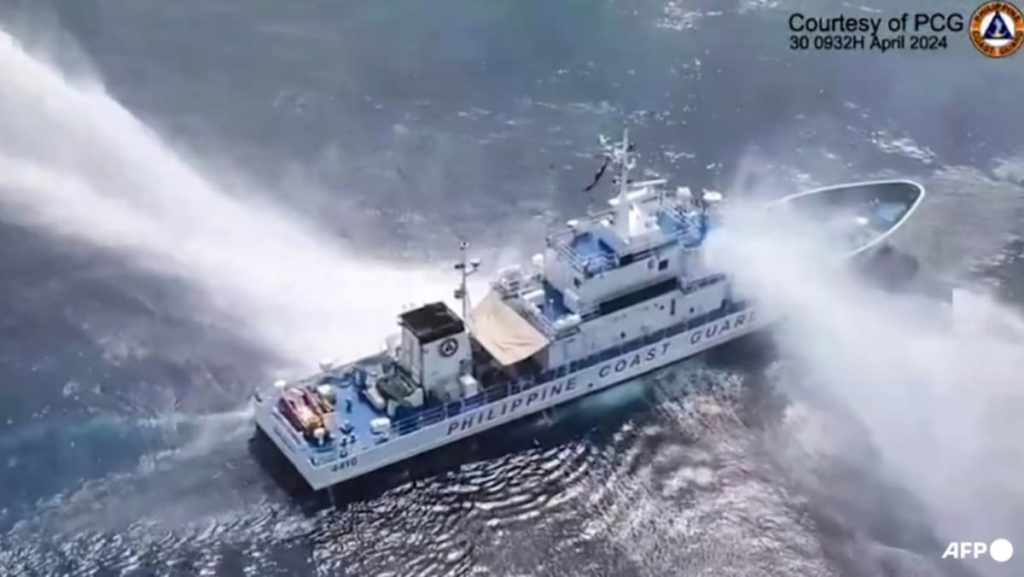t guard and fishing vessels to waters claimed by Manila, sparking a diplomatic protest from the Philippines and concern from the United States. The Philippines has been increasing its maritime patrols and plans to bolster its military presence in the region, but President Marcos emphasized that the country would not escalate tensions by resorting to similar aggressive tactics.
Despite growing tensions with China in the South China Sea, President Marcos reaffirmed Manila’s commitment to resolving disputes through peaceful means and dialogue. The Philippines has filed several diplomatic protests against China’s activities in the region, but Marcos emphasized that the country’s response would be measured and in accordance with international law. He stressed the importance of upholding sovereignty in the face of Chinese incursions while also avoiding actions that could escalate the situation further.
China’s increasingly assertive actions in the South China Sea have raised concerns among neighboring countries and the international community. The deployment of water cannons against Philippine vessels is seen as a provocative move that could further heighten tensions in the region. The Philippines has sought support from its allies, including the United States, in addressing China’s activities in the disputed waters. President Marcos emphasized the importance of international cooperation in maintaining peace and stability in the South China Sea.
The Philippines has been strengthening its maritime patrols and military presence in the South China Sea in response to China’s increasing aggression. President Marcos announced plans to enhance the country’s defense capabilities to protect its territorial waters and uphold sovereignty in the face of Chinese incursions. Manila has also called for a peaceful resolution to the disputes in the region, emphasizing the need for dialogue and adherence to international law. The Philippines remains committed to safeguarding its interests in the South China Sea while avoiding actions that could lead to further escalation.
President Marcos reiterated Manila’s commitment to resolving disputes in the South China Sea through peaceful means, despite China’s provocative actions. The Philippines has faced challenges in asserting its sovereignty in the region, given China’s growing assertiveness and territorial claims. Marcos emphasized the importance of upholding international law and engaging in dialogue to address the tensions in the South China Sea. The Philippines remains firm in its stance on sovereignty and territorial integrity, while also seeking opportunities for diplomatic engagement to de-escalate the situation.
In conclusion, President Marcos’ statement reflects the Philippines’ efforts to navigate the complex dynamics of the South China Sea dispute while upholding sovereignty and pursuing peaceful resolutions. Manila’s response to China’s deployment of water cannons underscores its commitment to avoiding escalation and resolving conflicts through dialogue. The Philippines continues to seek support from allies and the international community in addressing China’s actions in the disputed waters. President Marcos’ emphasis on international cooperation, adherence to international law, and peaceful resolution of disputes highlights Manila’s diplomatic approach to managing tensions in the South China Sea.













